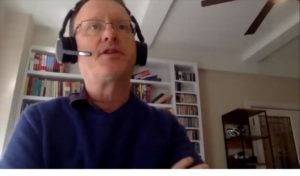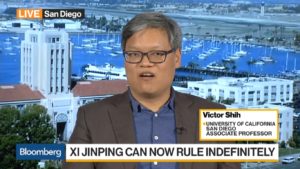
China faces not only its most prominent problem Evergrande but a range of issues, says leading economist Arthur Kroeber in the New York Times. Shortage of electricity, dealing with its big tech companies and many other in-debted giants offer similar challenges. “The common feature of these crises: All were triggered by government policies,” he writes.
Arthur Kroeber:
Crushed by $300 billion in debt, Evergrande, one of China’s biggest property developers, is sliding toward bankruptcy. This has prompted fears of a wider property crash or even a financial crisis.
But this is hardly the only crisis besieging the government of Xi Jinping. An unexpected electricity shortage threatens to slow down manufacturing. And for the past year, the government has waged a fierce campaign to regulate China’s vibrant internet companies, spurring hundreds of billions of dollars in investor losses.
The common feature of these crises: All were triggered by government policies. In the eyes of Beijing, these policies are meant to fix deep structural problems in the economy and lay more solid foundations for future growth. To many outsiders, they represent a dispiriting retreat from the market-oriented reforms of the past and signal the end of China’s long economic boom. But forecasts of China’s doom are most likely mistaken, as they have so often been.
True, in the latest quarter, economic growth slowed to a crawl, growing by just 0.2 percent compared with the previous quarter. The next several months will be rockier still. Slower growth in China is unwelcome news for a global economy struggling to regain its footing after the disruptions of the Covid-19 pandemic. But over the next few years, China is likely to regain momentum — in part because of the hard work it is doing now.
The biggest immediate worry is the collapse of Evergrande. Like most Chinese property developers, it relies on two key funding sources: deposits paid by home buyers before construction and huge amounts of debt.
Evergrande’s woes result from a government campaign begun last year to force property developers to reduce their liabilities. It is the latest move in a five-year effort to bring the country’s debt under control. According to the Bank for International Settlements, China’s gross debt level, at 290 percent of G.D.P., has doubled since 2008. While that level is comparable with that of rich countries with well-developed financial systems, it is high for a middle-income country. China’s leaders know that to avoid a financial crisis or avoid a repeat of Japan’s stagnation of the 1990s — the aftermath of a big debt-fueled property bubble — growth in the future must be far less reliant on debt than it has been.
The problem is that by attacking debt in the property sector, regulators risk shutting off a powerful engine that directly or indirectly affects as much as a quarter of China’s economic growth. Problems are spreading beyond Evergrande. Other developers are having trouble repaying their debts. And the sales and construction of new housing are both falling.
Arthur Kroeber is a speaker at the China Speakers Bureau. Do you need him at your (online) meeting or conference? Do get in touch or fill in our speakers’ request form.
Are you looking for more strategic experts at the China Speakers Bureau? Do check out this list.
